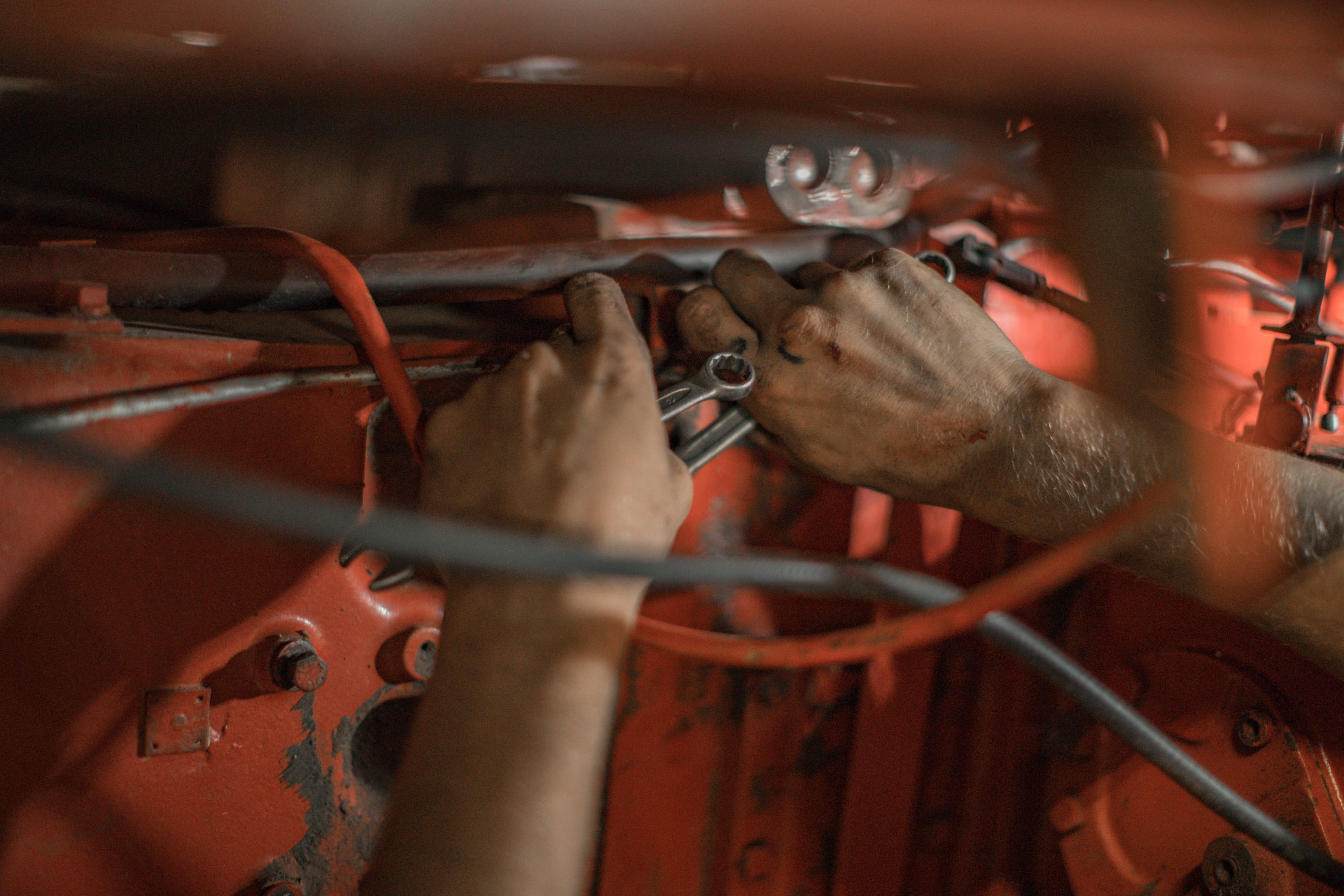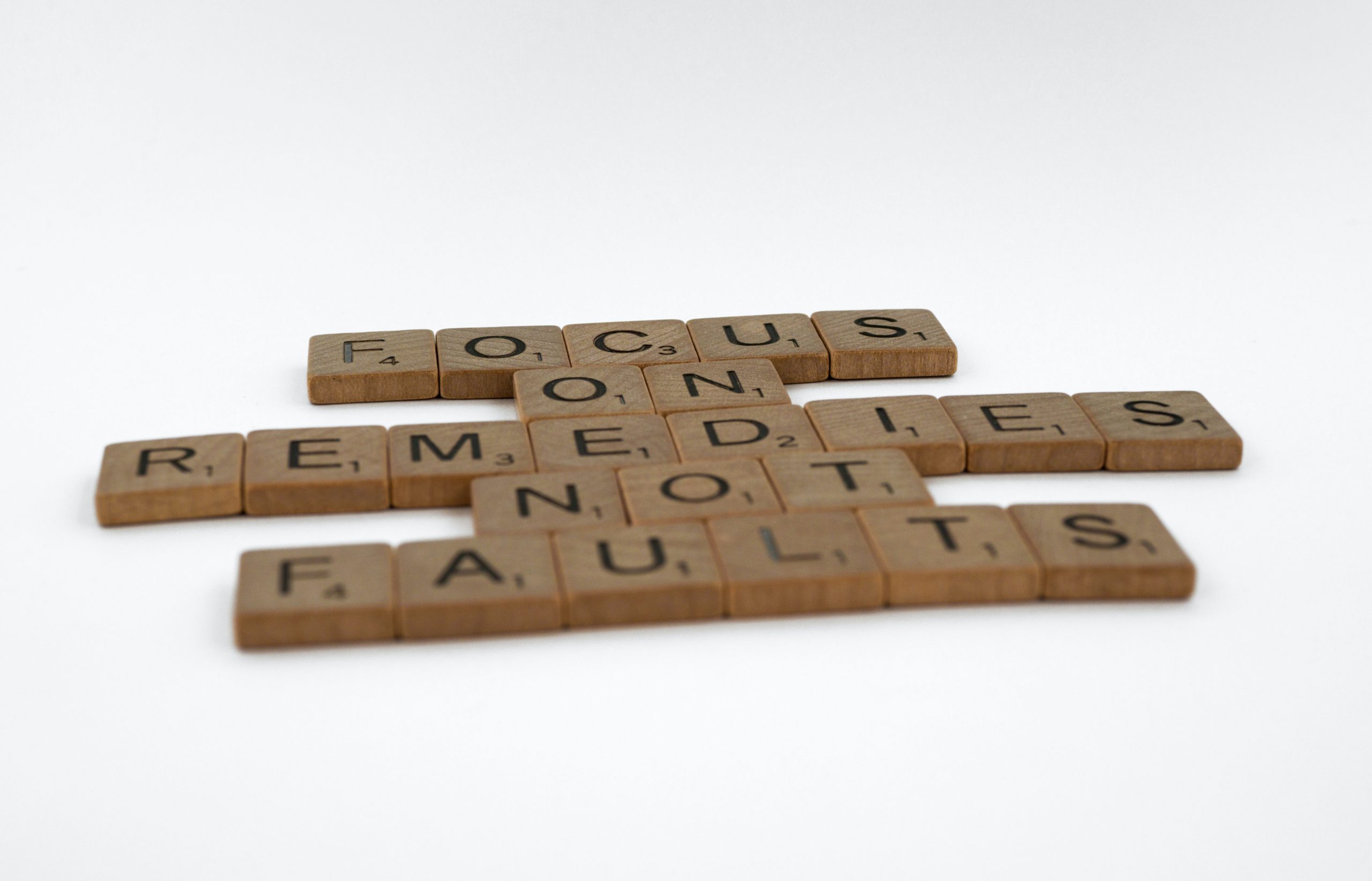You act like you know everything

Acting like you know everything – or worse, actually believing that you do – is a surefire sign that you need to grow up. As most people get older, they start to understand the limits of their own knowledge, a realization that normally brings a sense of humility. If you have yet to experience this, you need to get out into the world more.
You have no respect for authority

No one likes a suck-up, and there are times when standing up to authority is the right thing to do. That being said, stubbornly refusing to respect anyone’s authority is an incredibly childish trait that will undoubtedly hold you back professionally, and might even land you in trouble with the law.
You struggle with self-control

Problems with self-control can manifest in many different ways, but they all point to a lack of maturity. Discipline isn’t easy to develop, and it requires a lot of diligent effort, but it’s also one of the surest predictors of longterm health, success and happiness.
You keep getting into bad relationships

If you keep ending up in toxic relationships – be they romantic or platonic – it’s almost certainly because you have unresolved psychological issues. These issues probably have their root in childhood, and you aren’t to blame for them, but it is your responsibility to acknowledge them, own them and deal with them.
You are arrogant

As the saying goes, “arrogance needs to be explained, confidence speaks for itself.” You might think your cocky attitude comes off as self-assured, but in reality it makes you seem insecure, fragile and emotionally immature. Arrogance is also one of the most universally repellent traits, and it will almost certainly hinder your chances of forming genuine connections with people.
You value popularity over integrity

It feels good to be liked; as social animals, we’re hardwired to want to fit in. That said, at a certain point in your life, you should start to realize the importance of being authentic, even if it means rocking the boat. If you always feel like you’re appeasing those around you at the expense of your own integrity, it’s time to reassess your priorities.
You avoid hard work

As anyone at the top of their field will tell you, hard work trumps talent. If you find yourself consistently avoiding difficult tasks, it’s worth trying to understand why. You might have a sense of entitlement, or you might be scared of failure (or success, for that matter). Whatever the cause, self-awareness is the first step to growing up and getting down to work.
You never accept blame

Owning up when you’ve gotten something wrong can be painful, but it’s an unmistakeable sign of emotional maturity. As well as infuriating the people around you, steadfastly refusing to accept responsibility when you mess up will prevent you from learning from your mistakes, destining you to repeat them.
You can’t admit when you’re scared

Fear is a basic emotion that everybody feels from time to time. If you can never admit that you’re afraid, however, it’s probably because you have a deep-seated aversion to vulnerability. In the long-run, this will prevent you from forming deep, meaningful relationships with others.
You don’t work well with others

Being able to work well with others requires tolerance, open-mindedness and the ability to compromise – all of which is difficult if you are emotionally immature. If you always seem to end up falling out with your teammates, it’s probably time to question whether you’re the problem.
You complain about everything

Incessant complaining is a deeply unattractive habit, and it’s also a clear sign of immaturity. In essence, people who complain a lot are constantly asking “why isn’t everything the way I like it?”, which shows a fundamental failure to understand the way the world works.
Your friends have outgrown you

As you get older, you’ll inevitably drift apart from some of your friends. If, however, you’re increasingly getting the feeling that all of your friends are moving on without you, it’s possible that they’re simply outgrowing you, and that you need to start acting your age.
You never leave your comfort zone

Getting outside of your comfort zone is, by definition, uncomfortable. It’s also the only way to grow. This is a lesson most people naturally internalize as they get older, but those that don’t will go out of their way to avoid trying new things, remain stuck.
You think you can do everything on your own

Growing up means coming to accept your limitations, and developing the humility to ask others for help. Immature people have never gone through this stage, meaning they think they can do everything themselves, a mentality that rarely leads anywhere other than failure.
You always play the victim

If you haven’t got the emotional maturity to face the consequences of your actions, playing the victim can give you an easy way out. Over time, this will lead to you developing a genuine victim complex, at which point your internalised sense of helplessness will make it incredibly difficult for you to change your life for the better.
You’re entitled

If you were spoiled as a child, it doesn’t necessarily mean you’re doomed to remain emotionally stunted forever, but it does mean you’ll have to invest some serious effort into inner growth. If your sense of entitlement has persisted into adulthood – especially if it causes you to like a brat – it’s a sure sign you’ve got a lot of growing up to do.
You’re financially irresponsible

If you consistently live beyond your means, it’s probably because you have yet to grow out of the childish belief that someone will always bail you out of your financial troubles. It should go without saying that this attitude is highly destructive, and likely to cause you serious problems throughout your life.
You put other people down

While low self-esteem isn’t necessarily a marker of immaturity, putting other people down to lift yourself up certainly is. If you feel the need to denigrate those around you in order to feel better about your own life, it means you’re sorely lacking more mature ways of regulating your emotions in a healthy way.
You never listen

Never listening to anyone around you is a generally annoying habit, but it’s also a highly self-destructive one. If you always think you know best, you’ll likely miss out on useful advice and genuine wisdom that could make you a better person and improve your life in real, tangible ways.
Your friends don’t challenge you

Your friends are supposed to support you through thick and thin, but they shouldn’t be sycophants who never challenge you to improve. If you feel like your friends only ever tell you what they think you want to hear, you probably unconsciously gravitate towards people who don’t threaten your fragile, immature ego.
You can’t stand confrontation

As you get older, you’ll realize that – while rarely pleasant – confrontation is sometimes necessary when it comes to protecting your boundaries. If you always let others walk all over you to avoid the stress of standing up for yourself, it shows that you have yet to develop the self-respect that comes with age, maturity and experience.
You always blame others

It’s pretty normal for a kid to point fingers at their sibling in an attempt to wriggle out of punishment, but that kind of behavior in adulthood is a major red flag. If you always have to shift blame to somebody else, it’s probably because you’re too emotionally stunted to handle the discomfort of taking responsibility.
You never hold down a job

Immature people tend to give up at the first sign of adversity, and when it comes to jobs, this often means literally quitting. An important part of growing up is realising that success rarely comes easily, and unless you learn how to weather discomfort you’ll never reach your full potential.
You regularly stay up way too late

If you rarely find yourself going to sleep before the small hours of the morning, you probably haven’t matured much since you were a teenager. While staying up late partying or playing video games is undeniably fun, it will interfere with your ability to spend your days productively.
You never keep your promises

Failing to keep your promises won’t just reveal your lack of maturity, it will also mess up your life. Developing a reputation for being unreliable will severely damage your standing both personally and professionally, and in the long run will make sure no one wants to form a connection with you.
Your life hasn’t changed for a long time

While personal growth is an internal process, the results are almost always externally visible. If your life is still in the same place it was five years ago – be it personally or professionally – it’s a sign that your development has ground to a halt.
You can’t get on with people who are different to you

It’s easy to get along with people who have the same interests and attitudes as you, but getting along with people who are noticeably different is much trickier. Being able to find common ground is an ability that comes with maturity, which is why kids tend to cling to those who are similar to them.
You live paycheck to paycheck

Being an adult means thinking about the future and planning for difficult times. Living paycheck to paycheck is pretty much the antithesis of this. Making sure you’ve got money set aside for a rainy day is an important part of managing your finances, and you should always make sure you have enough to cover your bills for a few months in the event you lose your income.
You engage in reckless behavior

Youth is often accompanied by a feeling of invincibility, but this should be replaced by a sense of realism as you grow out of your teens. If you’re still engaging in reckless, dangerous behavior (such as driving too quickly) well into adulthood, you need to grow up before you get yourself hurt.
You prioritise your social life over your career

Building a career generally requires you to invest a significant portion of your time, and this might sometimes interfere with your social life. Annoying as this may be, making sacrifices is necessary if you want to succeed, and if you’re passing up opportunities because of FOMO you need to seriously reevaluate your priorities.
You can’t drink in moderation

Self-control and emotional maturity are deeply connected, and if you struggle to drink in moderation it’s a sign you’re lacking in both. It’s not the end of the world if you overdo it from time to time, but you should be able to have a few quiet drinks without proceeding to get blackout drunk.
You constantly seek attention

Attention can feel great, but by the time you hit your early twenties (at the latest), you should have developed a sufficiently strong sense of self to no longer need validation from other people. If you’re never happy unless the spotlight’s on you, you need to learn how to feel good about yourself, for yourself.
Your diet is terrible

When you’re young, it’s hard to think about the long term consequences of your actions. That should change as you get older, but if your diet still largely consists of junk food it probably means you haven’t developed the ability to give serious consideration to the effects of your habits.
You hold grudges
When you forgive someone who has wronged you, you’re letting go of negative emotional energy that will only stand in the way of your happiness. This is a lesson that takes time to learn, however, which is why holding grudges is a clear sign of immaturity.
You still live with your parents

If you’re in your twenties – or even older – and you’ve yet to move out of your parents’ home, it’s undoubtedly time for you to grow up. While striking out on your own can be a daunting experience, claiming your independence is an important rite of passage that will allow you to begin your adult life in earnest.
You have a hard time saying no to people

Wanting to avoid disappointing others is natural, but as you mature you should begin to develop the ability to draw and enforce boundaries. Being a people pleaser might allow you to avoid short-term discomfort, but it will prevent you from living a life true to yourself.
You think someone else can “fix” you

Immature people often believe that they can solve their problems and come to a place of emotional health by meeting the perfect partner. Unfortunately, this tactic is doomed to fail. Not only are you the only person capable of dealing with your own, unique set of issues, placing responsibility for “fixing” your problems onto someone else is deeply unfair to them.
You never actually try to change your life for the better

It’s good to have a plan, but if all you do is talk about the changes you’d like to make in your life – without ever actually following through – you clearly lack the maturity that’s required for positive action. Fortunately, it’s easy to get better at this; start by setting small, achievable goals, and then make sure you actually work towards them.
You only like talking about yourself

If you love talking about yourself, and find yourself bored to the verge of tears whenever you have to listen to anyone else talking about their life, then you’ve got some growing up to do. Mature people are curious about others, which is why they’re much more likely to ask questions than go off on a monologue.
You’re always waiting for inspiration

As Harvey Mackay once said, “Amateurs wait for inspiration, the real pros just get up and work.” Inspiration is much like motivation; it’s great when it’s there, but it can’t be relied on. This realization only comes through experience, which is why it’s so well understood by people with a high level of maturity.
You seek validation from social media

Gone are the days of childish popularity contests, but you find yourself caught in the numbers game. The dopamine hit from every ‘like’ or ‘share’ has become your validation. Growing up means understanding that social media isn’t a true reflection of your worth. Real-life connections and self-worth should not be defined online.
You gossip about others

Do you find that when you socialise you feel an impulse to share gossip? Whispering secrets may be a teenage thrill, but as an adult, it’s actually a sign of immaturity. So, instead of focusing on people in a negative light, shift your conversation topics to discussions of ideas or current events. Growing up means recognizing that gossip not only harms others but also stunts your personal growth.
You’re obsessed with material possessions

Remember when kids showed off their shiny new toys? If you’re still fixated on the latest gadget, designer label, or luxury car, you might be stuck in that mindset. Maturity means realizing that possessions don’t define success or happiness. Growing up means placing value on experiences and relationships, not materialism.
You have no long-term goals

Days meld into nights with a similar pattern: fleeting pleasures and avoiding responsibilities, and the future feels like a distant fog. When the absence of ambition or long-term goals becomes your steady state, it’s time to step back and think: ‘how will I build a meaningful future if I have no clear aims?’
You never make commitments

Maybe you loved playing ‘maybe’ when making plans as a teenager, but shying away from commitments as an adult? That’s a concerning trait. We’re not talking just big ones such as marriage, but little ones such as saying you’ll help a friend move. Growing up means committing to promises and following through because you understand the value of trust and commitment in your relationships.
You ignore your health

Fast food containers pile up, gym gear gathers dust, and sleep is often sacrificed for late-night binges. Your health – both mental and physical – is constantly pushed to the tomorrow that never comes. If this sounds familiar, it’s time to reflect and consider a major lifestyle overhaul. As we get older, keeping our body in good health is paramount.
You’re not interested in current events

Being oblivious to the broader world might’ve been forgivable during the carefree days of youth. But as an adult, remaining uninformed is not ok. Growing up involves engaging with world affairs, understanding different perspectives, and realizing that the world doesn’t revolve around just you.
You don’t have a rainy day fund

Financial responsibility is a hallmark of adulthood. Not having an emergency fun for unexpected occurrences – like car repairs or unexpected bills – indicates a lack of foresight and financial maturity. If your pockets feel scarily light at the thought of unplanned expenses, maybe it’s time to take a look at your financial health and prepare for those rainy days.
You’re manipulative

Pulling strings to make others dance to your playbook reflects a lack of emotional maturity. Adulting involves recognizing the autonomy of others and approaching relationships with genuineness. Remember: manipulation is a cheap trick that inevitably results in loneliness in the long run.
You don’t celebrate others’ successes

Is your joy for another’s achievements overshadowed by envy or annoyance? If so, take that as a stark mirror reflecting an underdeveloped emotional intelligence. Someone who is truly mature will celebrate and genuinely be excited for others’ triumphs. It’s having an understanding that their success does not diminish yours. Don’t forget: happiness shared is happiness multiplied.
You think you’re never wrong

Clutching tightly to the belief that you’re always right, especially when it’s glaringly obvious that you’re not, showcases a fragile ego. Maturing means being able to admit to errors with humility. It’s understanding that being wrong is a learning process, and not an attack of your intelligence. After all, we can’t all know everything.
You lack empathy towards others

Not being able to step into another’s shoes and view the world through their eyes doesn’t just highlight emotional insensitivity but also stops holds back your emotional growth. It’s not about simply understanding others’ feelings but also about being able to respond kindly and considerately. Don’t forget – empathy is the foundation of good relationship building.
You neglect your responsibilities

Skipping duties and not taking accountability reveals a childlike understanding of the importance of carrying out obligations. You can’t just skip through life expecting everything to simply work out for you. Adulthood recognizes that responsibilities, whether tedious or enjoyable, are not just tasks but reflections of our commitment to ourselves and others. Skipping responsibilities catches up in the end.
You have no interest in personal development

Finding that you’re still the same person as you were 5 years ago whilst all your friends seem to have improved? That’s not a good sign. Showing no interest in developing your skills, intellect, or character suggests a roadblock in your growing up. Maturity is knowing that personal development is a lifelong journey, and not a destination you reach at a certain age.
You resist advice and feedback

Shying away from or actively rejecting constructive criticism shows that you have an immature fear of vulnerability and failure. Alternatively, it could also mean that you refuse to see any issues in yourself. Adults understand that feedback is a tool for growth and learning from it is essential in becoming a well-rounded individual.
You overspend to impress others

Showing off your money (or perhaps the illusion of it) as a tool to gain approval or admiration from others is a sign of a shaky self-worth. In growing up and maturing you should realise that genuine relationships are built on connection and authenticity – not superficiality.
You’re a people pleaser

This could sound like a good thing to you – perhaps it sounds like a sign you’re a good or caring person? But perpetually seeking to satisfy others, especially if it’s at the cost of your own happiness or values, suggests you don’t value your own time and needs enough. You can’t please everyone, and respect for your own needs and boundaries is key.
You avoid difficult conversations

Dodging conversations that are challenging or uncomfortable shows a fear of confrontation and change. Being a mature adult involves being open to engaging in difficult conversations with genuine honesty and thought. Remember that resolution and progress often lie on the other side of discomfort.
You’re always late

Are you always finding yourself racing against the clock to plans? Consistently keeping your friends waiting not only reflects poor time management but also a disregard for their time. Growing up means seeing punctuality as a basic courtesy. It’s a sign that you’re thinking about others and not just living on your own clock.
You’re a procrastinator

Procrastination is a sign that you lack discipline and are potentially hesitant to step out of your long established comfort zones. It’s important to commit to actions that will forward your growth and not keep you stuck in the same place. Recognize that avoiding tasks only ends up holding you back.
You refuse to forgive

Holding onto grudges or a refusal to forgive keeps you stuck in the past. Growing up is realising that holding on to negativity only harms you in the end. Remember that forgiving someone is actually a gift to yourself. Even if you don’t see it straight away – your future self will thank you for taking that mature step.
You have no respect for boundaries

A classic sign of an immature mind is a blatant disregard for boundaries – both yours and other people’s. A healthy relationship thrives on mutual respect and understanding limits. Are you oversharing, pressuring, or refusing to accept a ‘no’? It may be a sign to do some work on yourself and take a literal step back.
You frequently make impulsive decisions

Recklessly jumping into decisions without giving thought to the consequences – be it financial, psychological, or risks to your relationships? This might seem exhilarating but, in the long run, it’s a dangerous path and is a sign you’re avoiding responsibility. Maturing means understanding the value of weighing pros and cons, and making informed decisions. It’ll do you good in the long run.
You exaggerate your achievements

Being mature means being comfortable with your own realities, and not feeling the pressing need to inflate your accomplishments. Constantly embellishing your stories of your success? That is a sign you need to grow up. Recognize that true growth involves being authentically you, unembellished successes and all.
You rarely express gratitude

When’s the last time you said ‘thank you’? Consistently overlooking the kindness and efforts of those around you reveals a lack of maturity. Maturity involves recognizing and valuing the role of others in your life and expressing gratitude genuinely and often.
You don’t follow through with plans

Ever been the person who commits to plans only to flake when something else catches your fancy? Not following through on commitments is not just about disrupting plans; it’s a signal that reliability and dependability are not strong traits of yours. Real maturity means honoring your word and being someone others can genuinely count on.
You always need to have the last word

Endless debates and the need to always have the last word suggest that you don’t value others’ perspectives or aren’t mature enough to admit when you’re wrong. A mature mind understands that being right is not what makes a successful discussion; learning, understanding, and peace are. Being able to step back and allow space for other voices is a sign of maturity.
You are obsessed with your appearance

Yes, there’s nothing wrong with taking pride in how you present yourself, but an obsession with appearances may hint at an avoidance of more meaningful parts of life. If your focus lies in how you are perceived physically, it might be worth exploring what’s being masked by that.
You don’t stand up for yourself

Navigating through life as a pushover, or always placing others’ needs and wants before your own, isn’t a good thing – it’s avoidance. Not asserting yourself? Not being able to voice your needs? This is not just bad for your self-esteem but also for your emotional growth. Learning to stand firm, express your needs, and assert boundaries are vital aspects of maturing.
You overindulge regularly

Whether it’s food, shopping, or other forms of pleasure, a consistent pattern of overindulgence is a red flag. Ok, we all escape reality through various forms of excess from time to time, but if you’re doing it often, it could be a sign that you’re avoiding confronting your issues and emotions. Mature individuals find balance in pleasure and responsibility – neither should be sacrificed for the other.